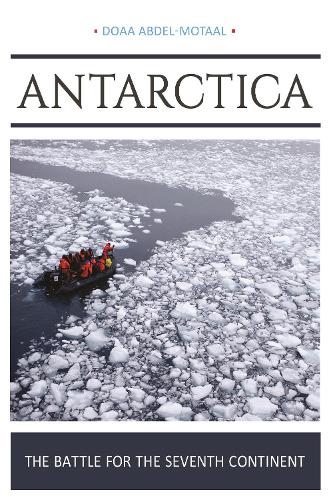
Antarctica: The Battle for the Seventh Continent
(Hardback)
Publishing Details
Antarctica: The Battle for the Seventh Continent
By (Author) Doaa Abdel-Motaal
Bloomsbury Publishing PLC
Praeger Publishers Inc
28th September 2016
United States
Classifications
Tertiary Education
Non Fiction
Public international law: environment
341.29
Physical Properties
Hardback
336
Width 156mm, Height 235mm
794g
Description
The thawing Antarctic continent offers living space and marine and mineral resources that were previously inaccessible. This book discusses how revisiting the Antarctic Treaty System and dividing up the continent preemptively could spare the world serious conflict. The Antarctic Treaty and related agreementscollectively known as the Antarctic Treaty System (ATS)regulate the seventh continent, which is the only continent without a native human population. The main treaty within the ATS came into force in 1961 and suspended all territorial claims in Antarctica. The Antarctic Environmental Protocol followed in 1998 and prohibited any minerals exploitation in the continent. With this prohibition up for review in 2048, this book asks whether the Antarctic Treaty can continue to protect Antarctica. Doaa Abdel-Motaalan expert on environmental issues who has traveled through the Arctic and Antarcticexplains that the international community must urgently turn its attention to examining how to divide up the thawing continent in a peaceful manner. She discusses why the Antarctic Treaty is unlikely to be an adequate measure in the face of international competition for invaluable resources in the 21st century. She argues that factors such as global warming, the growth in climate refugees that the world is about to witness, and the increasingly critical quest for energy resources will make the Antarctic continent a highly sought-after objective. Readers will come to appreciate that what has likely protected Antarctica so far was not the Antarctic Treaty but the continent's harsh climate and isolation. With Antarctica potentially becoming habitable only a few decades from now, revisiting the Antarctic Treaty in favor of an orderly division of the continent is likely to be the best plan for avoiding costly conflict.
Reviews
This is a most useful text that should see widespread application in the educational and policy making communities, and among Antarctic operators of one kind or another. The world is not static, change is all around, and there are lessons to be learned from the Arctic that could well be applied in the south to improve matters there. The book is well worth a read. * Polar Record *
Author Bio
Doaa Abdel-Motaal, PhD, is an environment and climate change expert. She is former chief of staff of the United Nations Fund for Agricultural Development, Rome, Italy, and deputy chief of staff of the World Trade Organization, Geneva, Switzerland.
